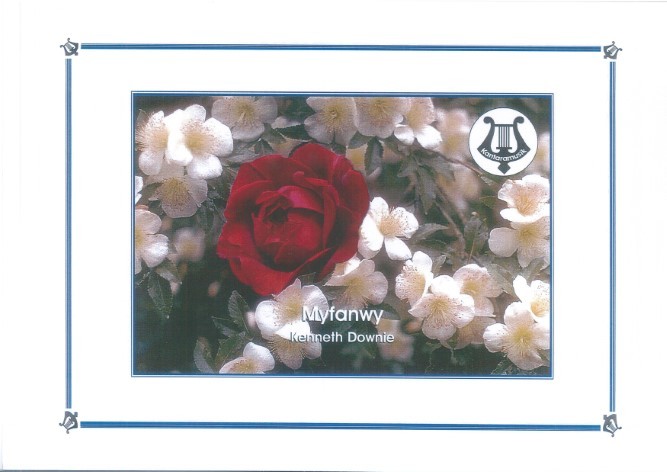Results
-
 £9.95
£9.95Myfanwy (Brass Band - Score Only) - Downie, Kenneth
This is a setting for brass band of one of the loveliest melodies to come from Wales. The composer was Joseph Parry while the original lyrics were written by Richard Davies and tell a poignant story of unrequited love. Nowadays the tune is often associated with other, sacred words.
Estimated dispatch 7-14 working days
-
 £50.90
£50.90ERINNERUNG AN ZIRKUS RENZ (Xylophone Solo with Brass Band) - Peter, Gustav - Woodfield, Ray
Gallop for Xylophone and Brass Band. Grade: Easy/Medium.
Estimated dispatch 7-14 working days
-
 £75.90
£75.90FOR THE FIRST TIME (Soprano Cornet with Brass Band) - Fernie, Alan
Soprano Cornet Solo & Brass Band. Grade: medium
Estimated dispatch 7-14 working days
-
 £50.90
£50.90HAVE I TOLD YOU LATELY (B flat Cornet or Flugel Horn Solo with Brass Band) - Morrison, Van - Wormald, Christopher
B flat Cornet or Flutelhorn Solo & Brass Band. Grade Easy
Estimated dispatch 7-14 working days
-
 £50.90
£50.90HAVE I TOLD YOU LATELY (B flat Cornet or Flugelhorn/Brass Band) - Morrison, Van - Wormald, Christopher
B flat Cornet or Flutelhorn Solo & Brass Band. Grade Easy
Estimated dispatch 7-14 working days
-
 £75.90
£75.90HELTER-SKELTER (Xylophone Solo with Brass Band) - Lemon, W. G. - Woodfield, Ray
Recorded on QPRL237D Master Brass Vol.24. Duration: 3:30. Grade: Medium
Estimated dispatch 7-14 working days
-
 £50.90
£50.90I KNOW HIM SO WELL (Soprano Cornet/Brass Band) - Barry, Darrol
Soprano Cornet Solo & Brass Band. Grade: easy/medium
Estimated dispatch 7-14 working days
-
 £50.90
£50.90LORD'S PRAYER, The (Euphonium/Brass Band) - Wilkinson, Keith M.
Euphonium Solo & Brass Band. Grade: Easy
Estimated dispatch 7-14 working days
-
 £50.90
£50.90ONE DAY IN YOUR LIFE (Tenor Horn/Brass Band) - Fernie, Alan
Tenor Horn Solo with Brass Band. Grade Easy
Estimated dispatch 7-14 working days
-
 £50.90
£50.90ROSE, The (Soprano Cornet/Brass Band) - McBroom, Amanda - Smith, Sandy
Soprano Cornet & Brass Band. Grade: Medium
Estimated dispatch 7-14 working days
